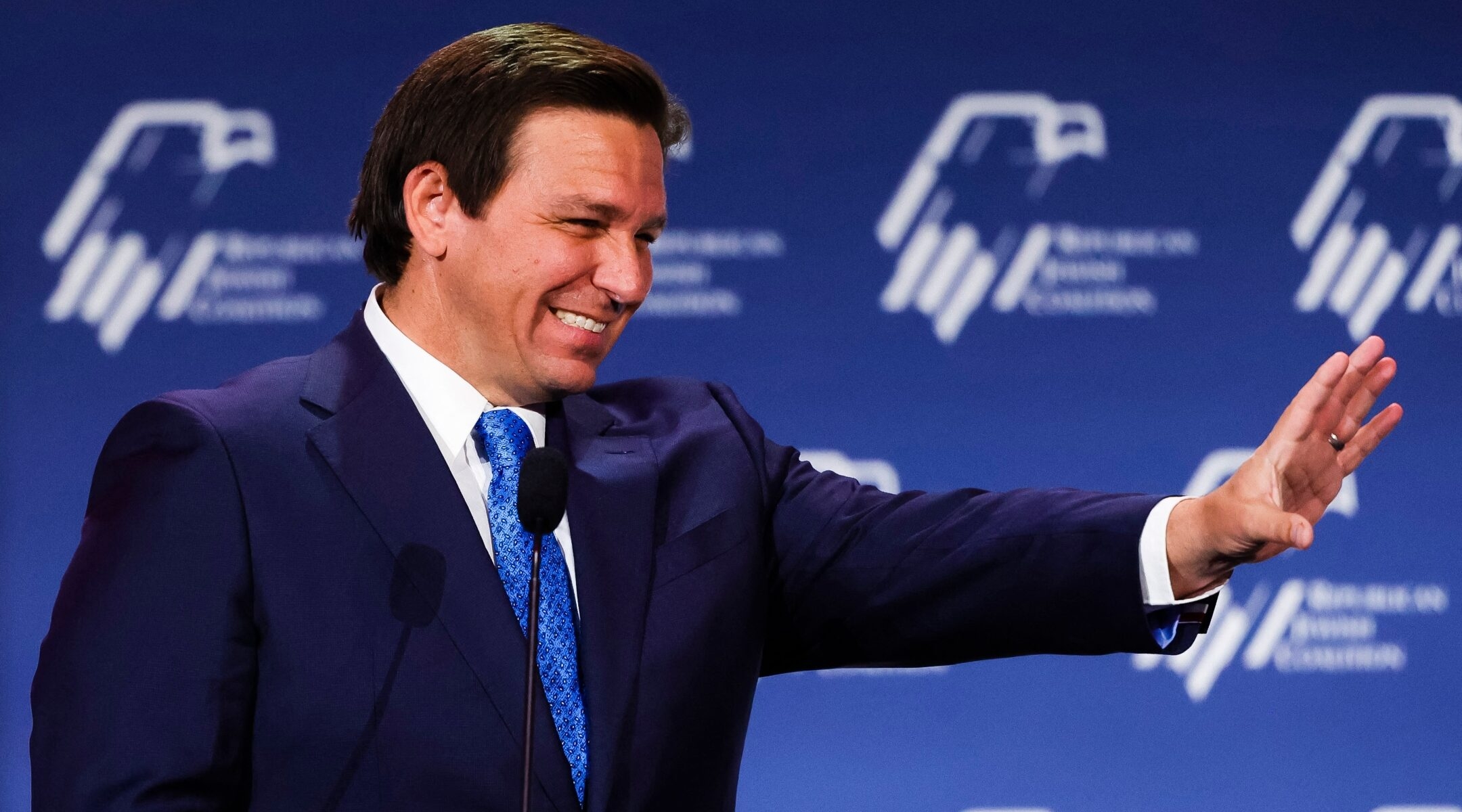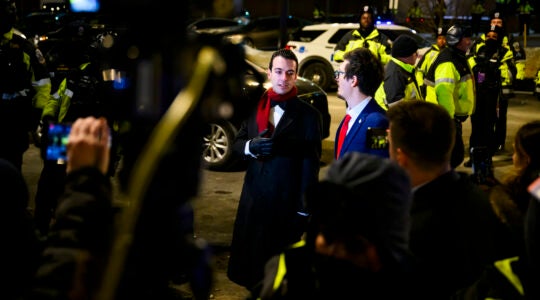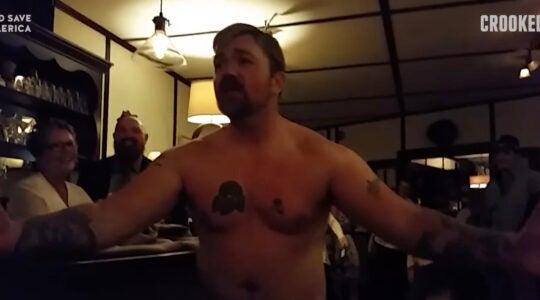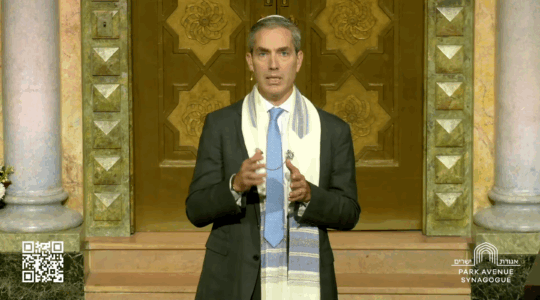(JTA) — Even though he hasn’t officially declared his Republican presidential campaign (yet), Ron DeSantis has been pitching his governance of Florida as a model for running the United States — telling Fox News last week, for example, that “we can get America back on track and back on our foundations” by following Florida’s example.
This week, he repeated the pitch with a twist: His close relations with Israel are a template for the U.S.-Israel relationship, he said — and he’s ready to make that case next month in Jerusalem.
“At a time of unnecessarily strained relations between Jerusalem and Washington, Florida serves as a bridge between the American and Israeli people,” DeSantis said, announcing his participation in a conference on April 27 cosponsored by The Jerusalem Post and the Simon Wiesenthal Center’s Museum of Tolerance. The event is called “Celebrate the faces of Israel.“
The “unnecessary strain” DeSantis mentioned is likely a reference to increasingly fraught relations between the government of Prime Minister Benjamin Netanyahu and the Biden administration over Netanyahu’s planned overhaul of the Israeli judiciary, which would sap the Supreme Court of much of its power and independence.
“They cannot continue down this road,” Biden said Tuesday regarding Netanyahu’s judicial reform, which the prime minister recently paused in the face of massive protests. Netanyahu responded to Biden on Twitter, praising the U.S.-Israel alliance but adding, “Israel is a sovereign country which makes its decisions by the will of its people and not based on pressures from abroad, including from the best of friends.”
In his statement to the Post, DeSantis noted how Israel-adjacent his administration has been: He held one of his first Cabinet meetings, in 2019, in Jerusalem, and has toughened laws restricting the state’s dealings with companies that boycott Israel. He also alluded to the influx of Orthodox Jews to his state during the pandemic, a period when Florida’s restrictions on schools were less strict than in the northeast.
“A few months after my inauguration for my first term as governor of Florida, I traveled to Israel for a state visit with the largest ever trade delegation from the sunshine state to the Jewish state,” DeSantis said in the statement. “Since that time, we have strengthened the relationship between Florida and Israel through increased investment by Israeli companies in our state, fighting the scourge of BDS, and being home to the fastest growing Jewish population in the United States.”
DeSantis has also been popular with organizations representing the interests of Orthodox Jews, who tend to vote Republican. This week he signed into law a bill that transfers roughly $8,000 per year to any parent who wants to send their child to private schools, a decision that was effusively welcomed by Orthodox Jewish groups and will impact parents who pay tuition at Jewish day schools.
Maury Litwack, managing director of public affairs at the Orthodox Union, which has pressed to enact a similar voucher program nationwide, said the Florida law could act as a template. “The historic achievement of universal scholarships in Florida is just the beginning,” Litwack said in a release.
The announcement of the trip comes as DeSantis has, for the first time, begun to parry attacks by former President Donald Trump — who has made clear that he sees DeSantis as his chief rival for the 2024 Republican nomination. Trump officially declared his candidacy last year. Last week, DeSantis mocked Trump for potentially facing legal trouble over an alleged payoff to an adult film actress.
That was seen as a signal that DeSantis is closer to making a decision about running in 2024. And this week, an independent political action committee backing DeSantis hired a roster of Republican power players. DeSantis has already banked $80 million in his state political committee, a stunning amount for a governor who, due to term limits, cannot run for reelection.
The Jerusalem Post noted that at next month’s conference, DeSantis will speak to “a crowd of 400 participants, including around 120 U.S. Jewish philanthropists,” at least some of whom will likely be major political donors.
JTA has documented Jewish history in real-time for over a century. Keep our journalism strong by joining us in supporting independent, award-winning reporting.






